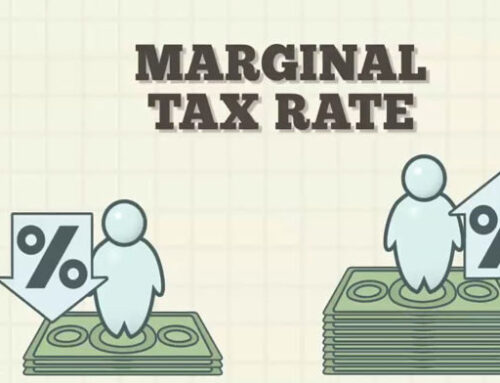Attention, students! This message is specifically for you. Even if you haven’t earned an income this year, it’s crucial to file your taxes. Why? Well, as a student, there are various special credits and deductions that you may qualify for the first-time student tax filing. These benefits can significantly increase your savings, but they are only accessible if you file your taxes. Don’t miss out on the opportunity to put some extra money back in your pocket!

First-Time Student Tax Filing: Tips and Tricks for First-Time Filers
Filing your taxes as a student may seem overwhelming, but fear not! We have gathered some valuable tips to help you navigate the process with ease.
- Mark Important Dates Avoid last-minute stress by noting down key tax-related dates, such as when the CRA opens for electronic filing and tax filing deadlines. Utilize a calendar app or set reminders on your phone to stay on top of these deadlines. The CRA provides a comprehensive list of important dates for individuals, or you can sign up for our newsletter to receive timely reminders.
- Stay Organized Collect all your forms, slips, and receipts throughout the year. Organize these documents by category and date, ensuring easy access when it’s time to file your return. Develop a habit of filing receipts promptly, either physically or digitally, to avoid any hassles later on. Taking photos of hard-copy receipts and saving them in an online folder can also be helpful for future reference.
- Understand Student Credits and Deductions Become familiar with the various tax credits and deductions available to students. One significant benefit is the tuition credit, which can provide substantial tax filing in Chatham relief. Obtain your T2202A form from your school’s web portal, as it outlines the tuition fees you paid during the year. If you don’t need to use the full amount of credits, you can transfer the unused portion to a parent or grandparent. Alternatively, you can save these credits for future use, such as after graduation when a tax refund would be especially valuable.
Did you know that if you moved more than 40 kilometers to attend full-time post-secondary school, you may be eligible to claim expenses for transportation, storage, travel, temporary living, and more?
This opportunity can help offset your expenses, provided you meet specific requirements as a full-time student and recipient of taxable scholarships, research grants, or prizes.
- Seek Assistance If navigating the CRA website feels overwhelming, don’t worry. Many post-secondary institutions offer guidance sessions where students and professors provide support on various unfamiliar areas, including taxes. Additionally, tax preparation companies often organize student tax clinics on campuses. If you still have lingering concerns, remember that we are available year-round to answer any questions you may have.

By following these tips, you’ll be well-equipped to file your taxes as a student tax filing and make the most of the available benefits. Don’t miss out on potential refunds and credits that can put money back in your pocket!
Managing Your Taxes: Avoiding Common Mistakes Amidst Changing Laws and Life Events
Keeping up with student tax filing law changes and avoiding student tax filing mistakes adapting to unpredictable life circumstances can present significant challenges when it comes to managing your student tax filing situation. It’s not uncommon to encounter errors such as miscalculations, marital status discrepancies, or even typographical mistakes when the time comes to file your taxes. To ensure a smooth process, here are some key points to be mindful of.
Also read: Essential Guide: Filing the Final Tax Return for a Loved One

Avoiding Student Tax Filing Pitfalls: Missing or Incorrect Information
One of the most common mistakes taxpayers make is either omitting or providing inaccurate information on their tax returns. Examples of such errors include reporting income twice or failing to account for cash earned from side gigs (yes, even tips are taxable!). Failure to report all income can lead to significant penalties, while missing information can result in costly consequences.
To streamline the process and minimize data entry errors, the government offers helpful services like the Canada Revenue Agency (CRA)’s Auto-fill my return (AFR) and Revenu Québec’s Téléchargement des données fiscales (TDF). These services enable you to securely download your information slips (such as T4 or RL-1 slips) and other tax-related details from the CRA or Revenu Québec website directly into your student student tax filing return. For more information on utilizing these services, you can visit the Online Help Centre.
Additionally, it is not uncommon to overlook essential information from your tax slips, which can have an impact on your tax refund. For instance, if you have investments, it is crucial to accurately track your adjusted cost base (ACB). The ACB encompasses the cost of the investment plus any expenses incurred during its purchase, such as commissions and legal fees. If your brokerage does not have the original cost information and leaves box 20 (cost or book value) empty on your T5008 slip, failing to provide this information on your return could result in an overstatement of capital gains, leading to either higher student tax filing liabilities or a reduced refund.
To avoid unintentionally overlooking vital information on your tax return, it is advisable to consult avoiding tax filing mistakes professional or have someone you trust carefully review your documents. If needed, you can always seek assistance from a student tax filing Expert at office near you, whether in-person or through remote consultations.
Also read: Deadline for Corporate Tax Filing for ODSP in 2023
Maximizing Your Tax Opportunities: Avoiding Missed Benefits and Deductions
One common mistake taxpayers make is failing to claim the benefits and deductions they are eligible for, ultimately missing out on opportunities to receive the highest possible refund.
For instance, individuals who have moved this year often overlook claiming their moving expenses. If you sold your home as part of the move, you may qualify for the principal residence exemption, which means you won’t owe taxes on the capital gains from the sale. However, it is still essential to report the sale details on Schedule 3 and complete form T2091(IND) Designation of a Principal Residence by an Individual. Québec residents will also need to fill out form TP-274-V: Designation of Property as a Principal Residence. Failing to submit these forms and having the CRA or Revenu Québec discover the home sale could result in denial of the principal residence exemption and a missed deduction.

Childcare expenses, disability student tax filing credits, and various medical treatments or devices that are not fully covered by personal insurance are additional credits and deductions frequently overlooked. This can include expenses related to prescription contact lenses, glasses, hearing aids, and other medically prescribed items.
By choosing to file, you can ensure that you maximize your refund with our Maximum Refund Guarantee. Whether you file with a Tax Expert or utilize our Do-It-Yourself Tax Software, you will be matched with all the credits and deductions you are entitled to. Stay updated with the latest student tax filing news by signing up for our newsletter or regularly visiting, where you can find updates from the CRA and Revenue Québec. For example, if the CRA announces a new federal benefit, you will be informed here.
Recent Posts
FAQ
What should I do with my forms, slips, and receipts throughout the year?
It is essential to collect and organize all your forms, slips, and receipts throughout the year. By categorizing and dating these documents, you ensure easy access when it's time to file your tax return. Developing a habit of promptly filing receipts, whether physically or digitally, helps you avoid any difficulties later on. Additionally, taking photos of hard-copy receipts and saving them in an online folder can be beneficial for future reference.



